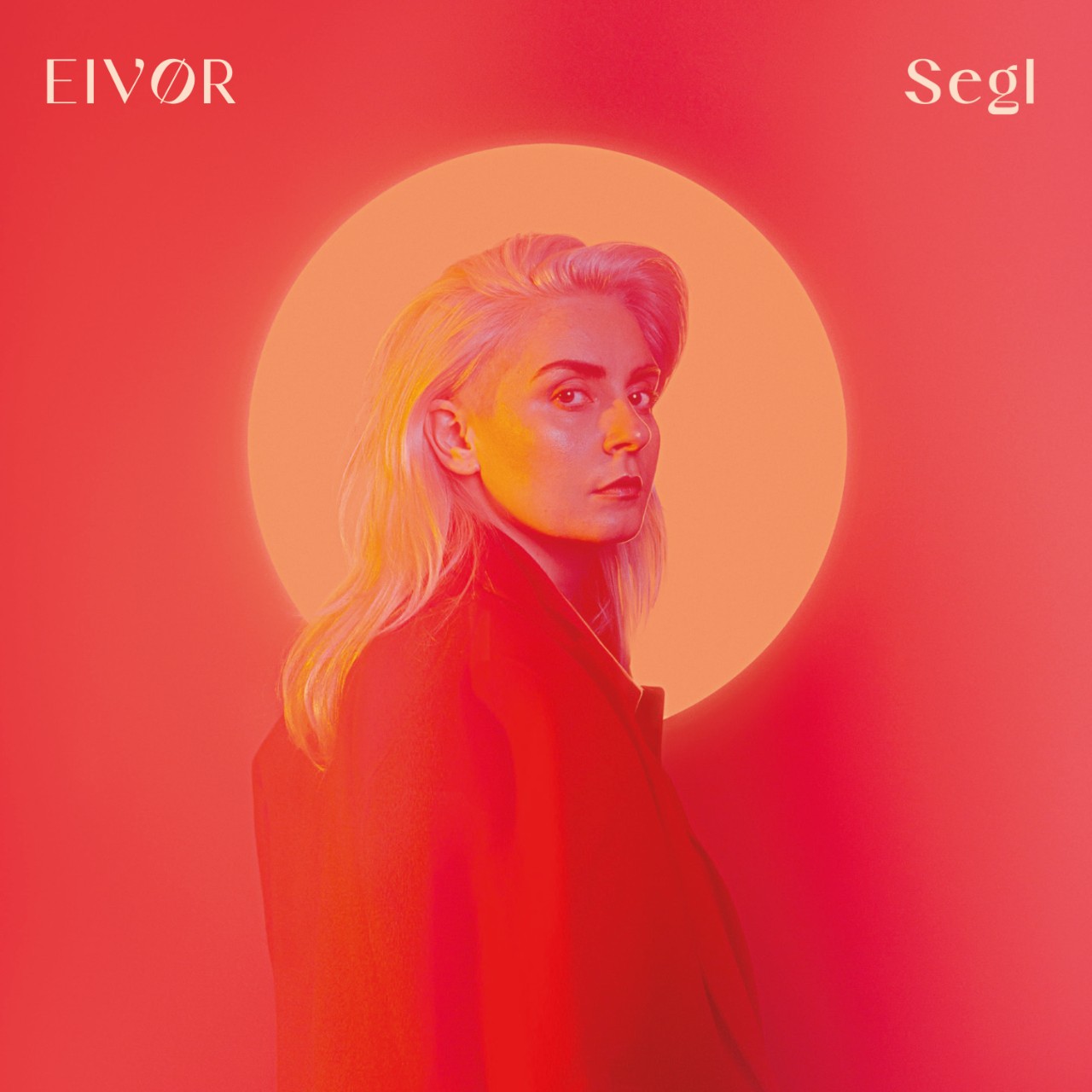Segl is the Faroese word for sail and Eivør, the Faroe Islands’ most successful musician, uses the trials and tribulations of riding the waves metaphorically to describe the uncontrollable direction that life occasionally takes us. You can try to steer your path as best as you can but during the strongest storms there are times you will concede that the journey is out of your hands. Rather than act completely defeatist, Eivør embraces this attribute of fate. The Faroese’s ninth album Segl develops her detailed elemental-electronica (I had been searching for the perfect genre description and the press release nailed it) by enhancing its ability to convey her environments. Adopting more electronic production can cause an artist’s music to lose its tangible quality, but Eivør being a passionate naturalist, avoids this trap. The throat-singing and shamanic frame-drumming has momentarily been suspended but the spiritual side to her music is still ever-present.
Eivør’s last album Slør was released twice, once in Faroese and then again predominantly in English. Segl features three tracks in Faroese. Short opener ‘Mánasegl’ introduces the jagged kinetics of her electronics with a subtle rock grit, as well as a vocal production technique that’s used on most of the tracks in which the 37-year-old’s voice is electronically-shadowed to give an echoey and sometimes mysterious glow (more Laurie Anderson on this song than at any other point). Lyrically it’s an ode to particular part of a boat. The highest sail on a boat built for speed called the moonsail (mánasegl). It features the perseverant poetic line. “Sigli. Sveimi í ljómandi loftbrá. Morgunin nýborin lívstrá (I sail on. I roam in a blazing mirage. In the newborn zest of the morning.)”
‘Gullspunnin (Cocooned in Gold)’ also features poetic lyrics, as they were written by a Faroese poet, Marjun Syderbø Kjælnes. It’s a sweet canticle written to reflect the climate of Eivør’s beloved North Atlantic territory, but it appears to be written from the perspective of nature waiting for the day in which the now-Copenhagen-living musician will be back in the Faroe Islands. “Um tú aftur kemur heim. Hygg inn til mín. Víðopin mín hjartahurð. Eitt pláss til tín. (If you return back home. Make a call on me. The door of my heart is wide open. A room for you.” Among the piano and idiosyncratic strings, it features beautiful atmospheric production sounds such as a crackling rainfall, the new age chanting from her previous records and what could be described as a cash register loop. It could be used on a tourism advert.
The other Faroese-language track ‘Stirdur Saknur (The Frozen Loss)’ is also a wonderful exercise in vocal atmosphere, featuring Eivør’s traditional chants, as well as the deeper vocals of Einar Selvik, Norwegian frontman of the dark folk group Wardruna. With drums that pump like heartbeats, and lyrics that capture a treacherous fight with the oceans: “The swell of the sea breathes, my soul moves slowly in the waves/try to keep my warm, my hope shives. Wrap up the chilling dream“, it’s easy to imagine an epic Woodkid-esque music video of travelling vikings. Eivør’s appetite for collaboration continues on the effervescent ‘Only Love’. She teams up with Ásgeir (who like her has had a Nordic-language album re-released in English) on a song that sounds like a heartfelt farewell to a chapter of one’s life, including saying goodbye to a cherished home in the city.
Yet on the euphonious album highlight ‘Skyscrapers’ and the industrial ‘This City’ the Faroese musician sounds suffocated by city life. Eivør appears in stuck between two worlds and in a cycle of two states of mind. A confident curiosity propelling her to explore outside her secluded birthplace in the village of Syðrugøta (“Outside our comfort zone. The air’s so cold. It tastes like freedom.” – from the Emilie Simon-reminiscent ‘Nothing To Fear’) but self-doubt creeps in after making the move to new urban surroundings. The punchy ‘Sleep On It’ begins the uncertainty, while the lines ‘I’m barely breathing, it’s no place for me” and “Inside the wheel. I’m turning upside down.” from the aforementioned city-themed tracks forces her to return to her sparsely-populated countryside.
However, Eivør acknowledges this wanderlust/homesickness loop by calling the album the Faroese for sail and employing an all-at-seas metaphor. But based on the fight power on ‘Let It Come’ (“But I know I’m changing. This time I’m ready for it”) she’s prepared for each storm of indecision, whatever form it takes.




